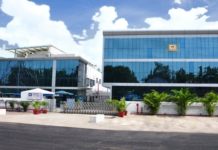Partners across multiple healthcare divisions join forces to break down siloes to accelerate precision medicine opportunities for COVID-19 and beyond BERG, a clinical-stage biotech that employs artificial intelligence (AI) to investigate diseases and develop innovative treatments, announced a new collaborative model across the healthcare industry to fast track drug discovery research for COVID-19 and beyond. The new ecosystem comprised of BERG’s partners, such as Bristol Myers-Squibb, AdventHealth and the DOE-funded Oak Ridge National Lab, are identifying new ways of working and breaking down existing siloes to maximize time and efficiency in identifying and bringing new treatment options to market.
The model fosters ongoing communications, and simultaneously leverages each discipline’s key expertise and capabilities at specific points of the drug development process. Through this ecosystem, BERG and partners will have the capacity to fine study their efforts at any stage of the drug process in real-time in addition to preparation for the next superbug incident. With an overarching goal of fighting the novel coronavirus infection, the model will also tackle important research and development for diseases that lack effective drugs or treatments, such as Alzheimer’s and Parkinson’s.
Centered on fostering innovation, partners will provide important and tactical resources to the collaboration, specifically:
AdventHealth, one of the largest healthcare systems in the U.S., holds an immense bank of patient data BERG’s proprietary Interrogative Biology Platform for identifying and deepening the understanding of AdventHealth’s patient biomarkers The Department of Energy-funded Oak Ridge National Lab’s Summit supercomputer for heightened speed and efficiency in addition to validating findings against biological and chemical biomarkers.
“COVID is a compressed and synthesized example of a life and death situation. If there’s one positive thing we can take away from this, it’s how we can go about working in different models and collaborate with new partners,” said Niven Narain, CEO, President and Co-founder of BERG. “Across the healthcare industry, many are overlapping research and development efforts, which can weaken our ability to enhance patient care and survival in the near-term. By removing the isolation around these efforts, we created an intersectional, interactive effort which we believe will transform the future of healthcare .”























